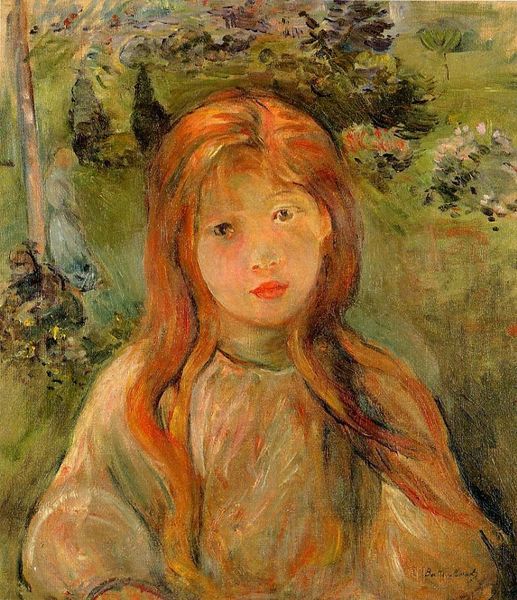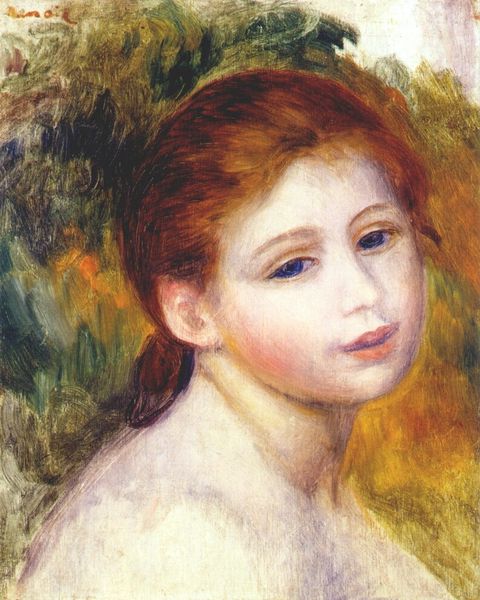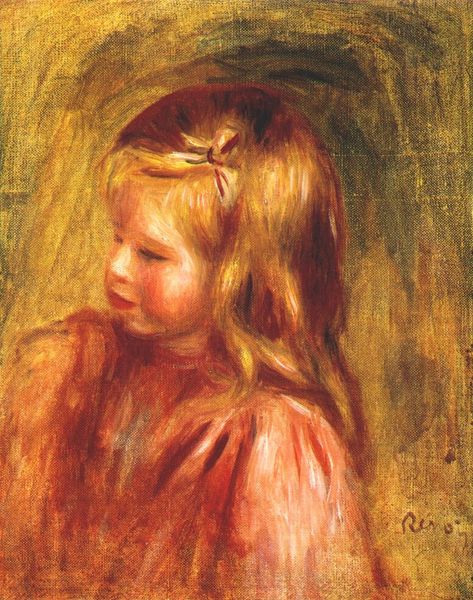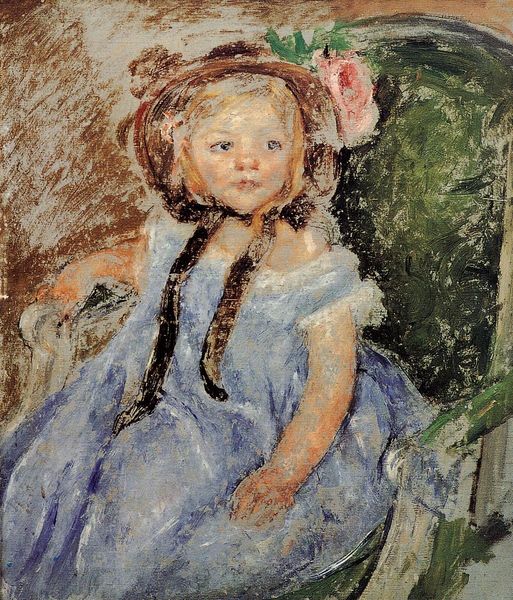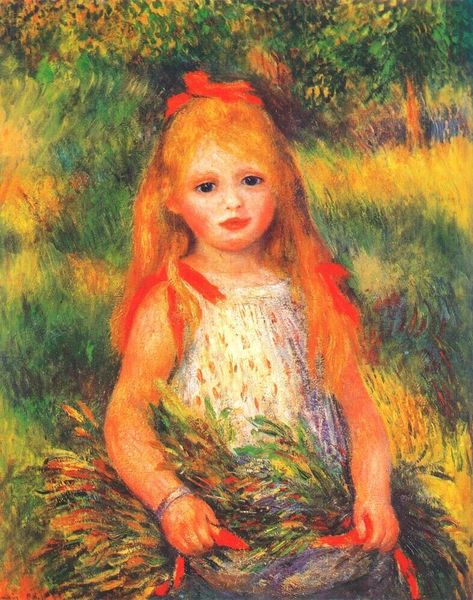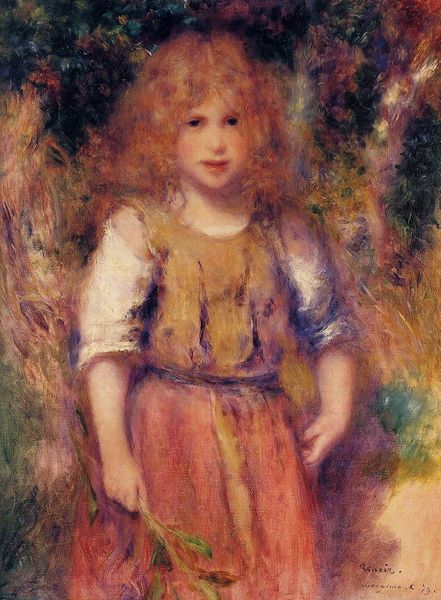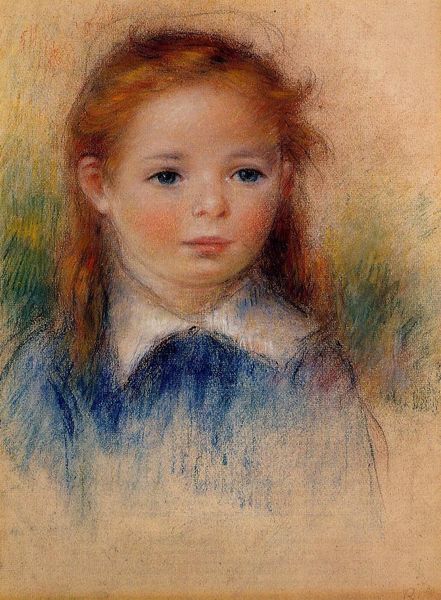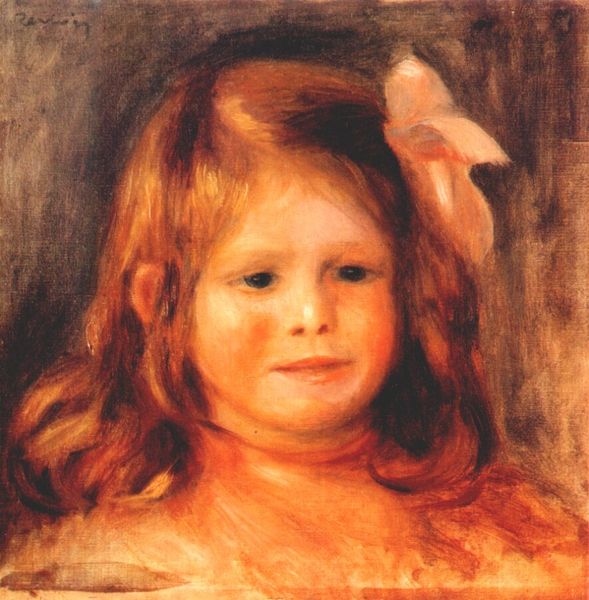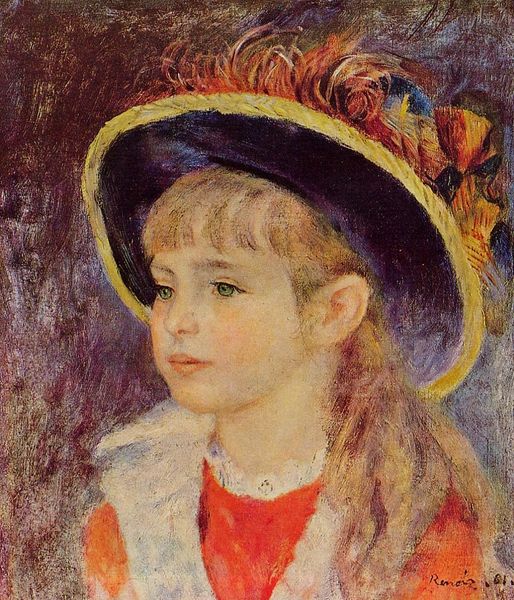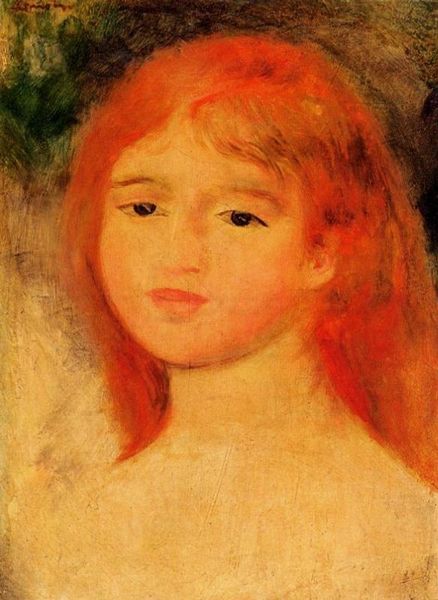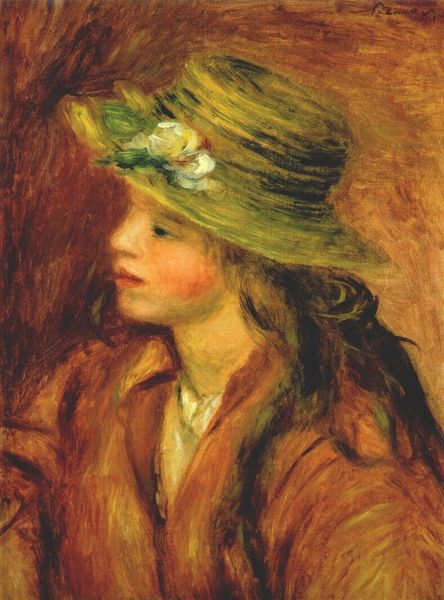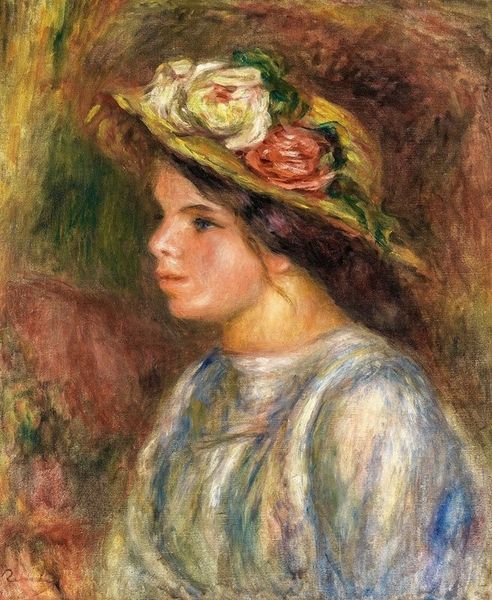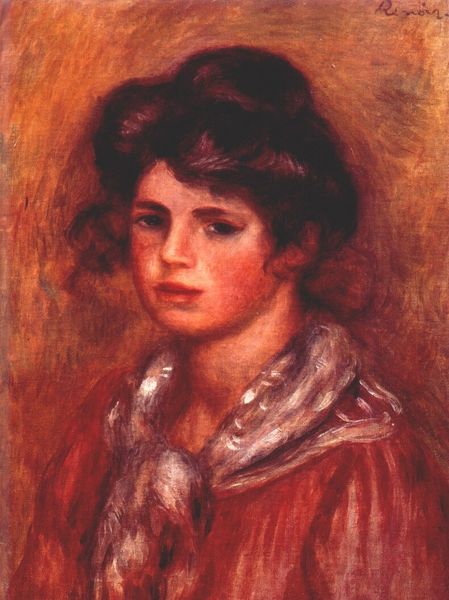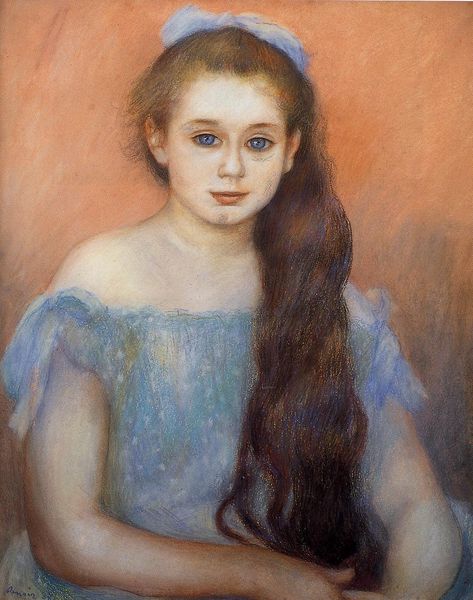
Copyright: Public domain
This is Pierre-Auguste Renoir’s "Algerian Woman," an undated painting whose surface dissolves into a flurry of soft, broken brushstrokes. The image is dominated by warm hues – pinks, oranges, and yellows. These colors blend to depict the subject’s skin, clothing, and headdress, giving the artwork an overall feeling of gentle warmth. The composition centres on the woman's face, framed by the intricate details of her headdress and the soft colours of her clothing. The texture is rich and varied, achieved through short, loose brushstrokes that create a sense of movement and light. Renoir, along with other Impressionists, was interested in capturing fleeting moments and the effects of light. Here, the brushwork suggests a lack of firm boundaries, typical of the Impressionist interest in destabilizing fixed representations. The application of paint becomes a semiotic system: the brushstrokes act as signs, evoking the sensory experience of light and colour, and challenging traditional academic painting. Renoir’s exploration of form over precise representation speaks to broader philosophical concerns about perception and reality.
Comments
No comments
Be the first to comment and join the conversation on the ultimate creative platform.
